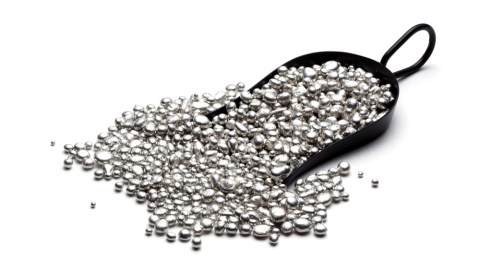Silver Can Make Antibiotics 1,000 Times Stronger

What’s the Latest Development?
Scientists at Boston University have described how silver, known since ancient times to have antimicrobial properties, can disrupt bacteria and possibly deal with the modern scourge of antibiotic resistant bacteria. Biomedical engineer James Collins found that silver attacks bacteria in two main ways: “It makes the cell membrane more permeable, and it interferes with the cell’s metabolism, leading to the overproduction of reactive, and often toxic, oxygen compounds. Both mechanisms could potentially be harnessed to make today’s antibiotics more effective against resistant bacteria.”
What’s the Big Idea?
With a small amount of silver added to present antibiotics, they could kill between 10 and 1,000 times more bacteria, according to the Boston University study. “The increased membrane permeability also allows more antibiotics to enter the bacterial cells, which may overwhelm the resistance mechanisms that rely on shuttling the drug back out.” To move forward, researchers must confront silver’s checkered past as a medicine. The substance, after all, is toxic. “Ingesting too much silver can also cause argyria, a condition in which the skin turns a blue-grey color—and the effect is permanent.”
Photo credit: Shutterstock.com
Read it at Scientific American





